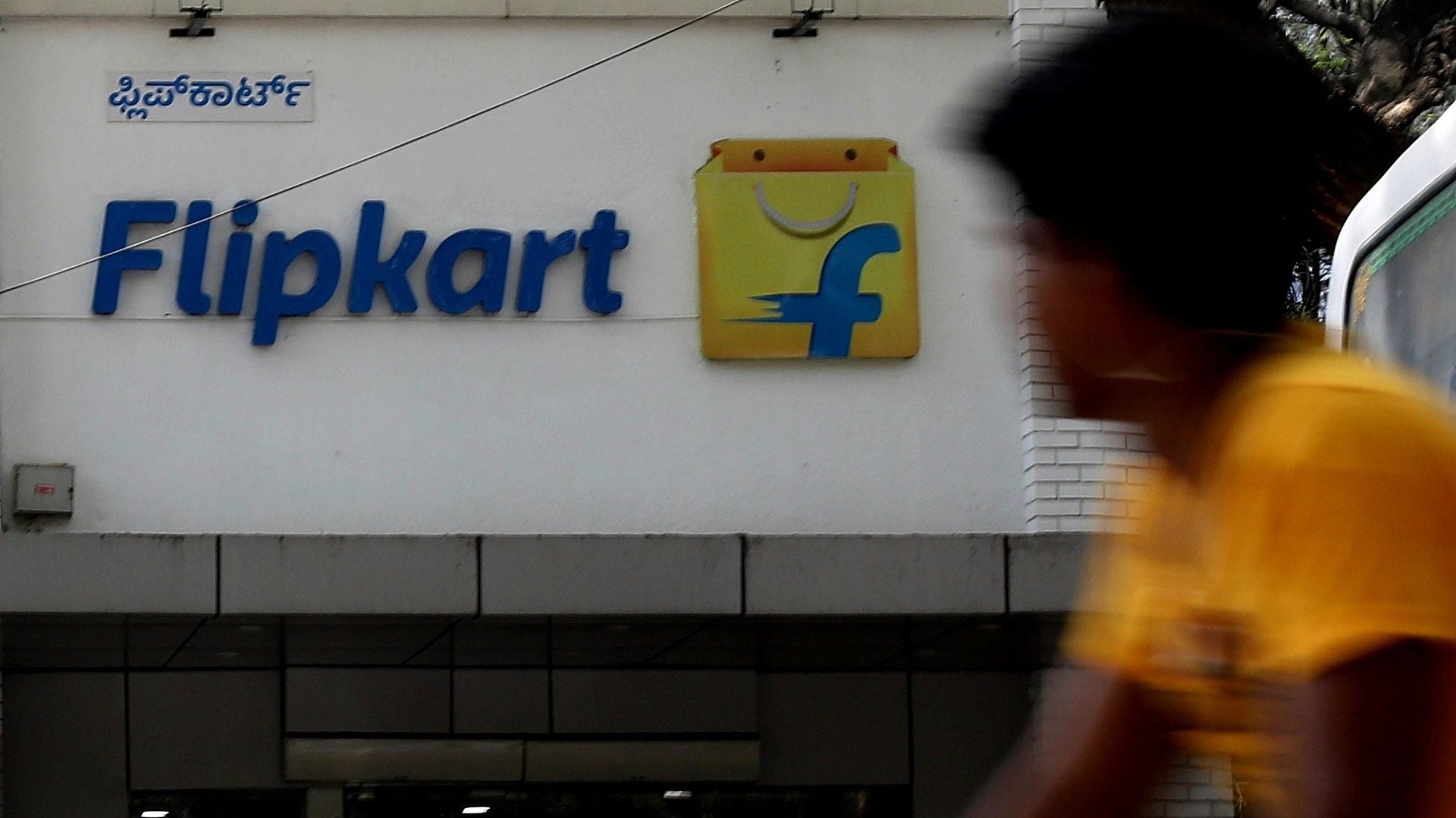Everyone in India’s startup capital has one question: “What’s going on with Flipkart?”
During an interview with a Bengaluru-based startup last week, Dipti (name changed) found herself facing three interviewers who abruptly launched into an informal chit-chat about Flipkart. “It went on for about 20 minutes and almost came to a point where I wanted to ask them what this had to do with the job that they were offering me,” the 30-year-old marketing professional said, requesting anonymity.


During an interview with a Bengaluru-based startup last week, Dipti (name changed) found herself facing three interviewers who abruptly launched into an informal chit-chat about Flipkart. “It went on for about 20 minutes and almost came to a point where I wanted to ask them what this had to do with the job that they were offering me,” the 30-year-old marketing professional said, requesting anonymity.
Bengaluru, India’s Silicon Valley, has lately become obsessed with the rumours that Flipkart is on the block and may be acquired either by American retail giant Walmart or e-commerce major Amazon.
From tea breaks at offices to formal dinners with investors and alumni meetups of engineering colleges, Flipkart’s impending sale is being discussed everywhere. “Flipkart ke baare mein suna?” (“Did you hear about Flipkart?”) has become something of a salutation here in India’s startup capital.
“It’s a really big deal for the Indian startup ecosystem,” said Amit Kumar Agarwal, co-founder and CEO of NoBroker.com. “Flipkart is a company that conquered the market and had a great journey. What happens to Flipkart will in some way impact the entire ecosystem.”
Some see it as a validation of India’s e-commerce potential, while others are looking at it as a source of inspiration. So, what is it about Flipkart that’s made it the talk of the town?
“Mother of Indian startups”
When IIT-Delhi graduates and former Amazon employees, Sachin Bansal and Binny Bansal (not related), started Flipkart as an online bookstore in 2007, there were hardly any internet businesses in India. The country was known only for its IT outsourcing industry and there was a serious dearth of new-age innovative software firms.
Flipkart went a long way in changing that image.
Over the last decade, the Bengaluru-headquartered company raised over $7 billion, becoming the third-most funded private company in the world. Peers watched with envy as a long list of marquee investors including Tiger Global, Accel Partners, DST Global, Morgan Stanley, and Softbank bet big money on Flipkart.
“If something untowardly was to happen to Flipkart, it would impact all of us in some way. There are so many investors who are backing the company and many others globally are looking at it closely as the face of the Indian startup community,” Agarwal of NoBroker said.
Flipkart has survived even as its once close rival Snapdeal imploded. Despite losses piling up, it has also stood strong against American behemoth Amazon, banking on its deep pockets and vast experience in running a large-scale online retail business.
Beyond just leading in India’s online retail sector, Flipkart has acquired over 10 companies, including in businesses like digital payments, to seal its position as the country’s largest homegrown internet firm.
In fact, some Indian entrepreneurs believe that Flipkart’s sale will make the company’s story even more exciting.
“Seeing a good exit for their investors is a big aspiration for every entrepreneur. All of us want to build something that catches the attention of global players,” said Shubhadeep Mondal, co-founder and director of PregBuddy, a peer-to-peer platform for pregnant women. “It’s very good news that an Indian company is being chased by two great global companies. Flipkart is truly the mother of all Indian startups.”
Good news for all
Once Flipkart strikes a deal, it would be the biggest acquisition that the Indian startup community has ever seen, and a massive relief to the ecosystem, which has been struggling to provide investors a smooth exit route.
A profitable exit for investors is one of the key metrics for a healthy startup ecosystem, validating the investors’ funding decisions.
“Giving investors successful exit routes has been the biggest missing piece in the Indian ecosystem,” said Prashant Sharma, a former entrepreneur currently working with Springboard, an online education platform. “But when a company like Flipkart, which has become a household name now, gets sold, it will be a big deal. Imagine the number of global investors who would look at the deal and start believing in the India story.”
Flipkart’s acquisition would also provide some comfort to India’s startup workforce, which includes many who left their cushy corporate jobs to take up relatively high-risk roles at young companies. Flipkart itself has a headcount of over 30,000 now, including around 8,000 permanent staff and over 20,000 contract workers who are part of its supply chain operations.
“Flipkart’s employees will get a chance to liquidate their employee stock options (ESOPs). I feel that’s such a big win for the Bansals,” said Akshay Chaturvedi, co-founder and CEO at education technology startup Leverage Edu. “I have a team of around 25 people now and while I want to succeed, I really want them to do well, too.”
But Flipkart’s likely sale to an American company has revived an old debate.
Whether Flipkart sells to Walmart or Amazon, it will be owned by an American player, which means the Indian e-commerce market will mostly become just a playground for foreign firms.
Ironically, Flipkart’s co-founder Sachin Bansal has been at the forefront of this indigenous versus foreign debate. He has even been working to bring together like-minded people to form a lobby group called Indiatech.org, which would represent the interest of domestic startups.
But the younger generation of entrepreneurs believes the argument is misplaced. ”We must understand that if we keep waiting for an Indian company to acquire another Indian company, we are limiting ourselves,” said Sharma of Springboard. “The success of an entire ecosystem is a far more important problem to solve.”